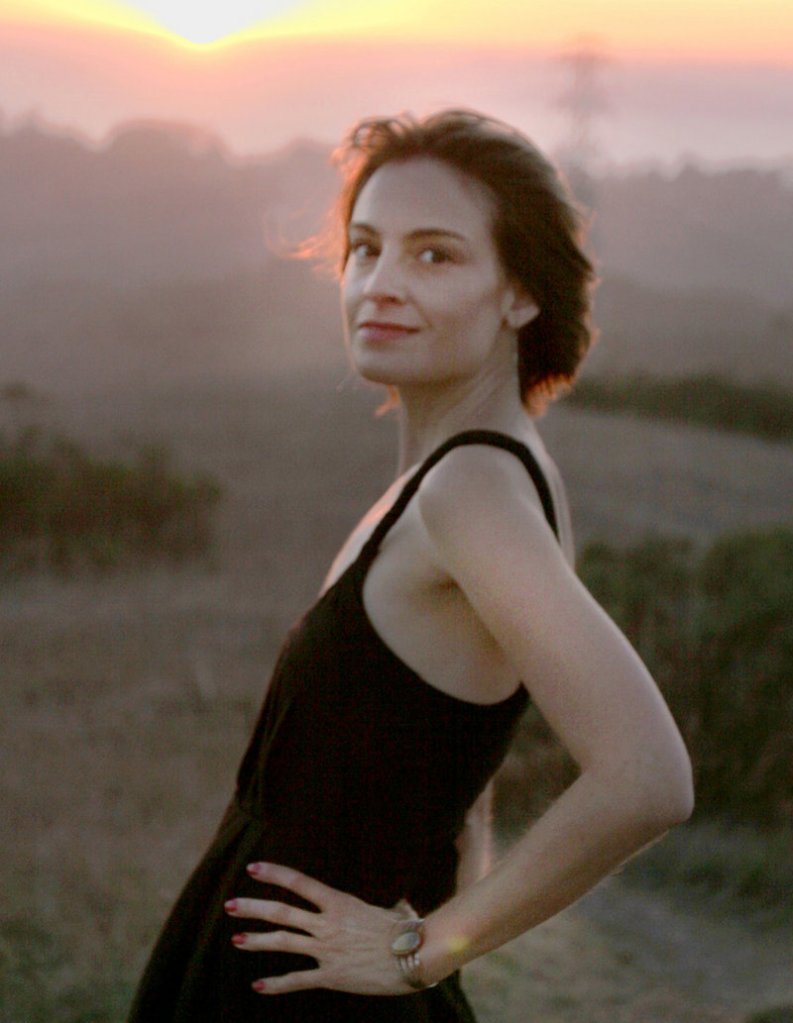“Put Out the Stars” is the new, and third, CD from Mainer-turned-Californian Rachel Efron, who is in town to mark the occasion with a show Saturday night at One Longfellow Square. Efron has forged a distinct “art-pop” sound for herself at the crossroads of jazz and pop with poetic lyrics and persuasive piano. Although she does occasionally perform with a full ensemble, Efron opted for the simple immediacy of piano and vocals for this tour.
When did you first start playing the piano and writing songs?
I started taking piano lessons when I was 8 years old. With the exception of a brief phase, I completely loved it, and found it to be a singular space of emotion. I learned classical music, mostly, but by the time I was in high school and college, I’d added a serious study of jazz.
Despite my fascination with poetry and near-obsession with song lyrics, it didn’t occur to me to try my hand at songwriting until I was a senior in college. When I finally did, it felt like a homecoming. I knew right away I wanted to do much more of it.
What’s your songwriting process like?
Every song is a different process. I am always struck by this. It is as though every potential song has completely different needs and desires, and therefore requires very different stuff of me. But generally, I begin a song when a fragment — of melody or lyric, or maybe a more general premise — comes to me. Often this happens when I am doing something unrelated to songwriting, when I am jogging or journaling or having a conversation. From the fragment, I will expound outwards a song form and melody.
Simultaneously, I will be honing in on the thematic center/urgency of the song and generating a bunch of language around that. I tend to finish my melodies before I deal much with the words. I find I am much more willing to negotiate my words for my melodies than the other way around.
How would you describe the term “art-pop?”
I’ve had a hard time naming the genre of my music. Having grown up immersed in classical and jazz, I am proud to have found my musical voice distinctly apart from them. That said, they are absolutely the foundation of my composing. I think particularly you can hear my early engagement with Chopin and Debussy all over “Put Out the Stars.” Most often, I’m called folk, but truly that is the thing I am least. I consider my songs pop because of my commitment to catchy melodies and chord changes, but more deeply because my goal in writing songs is to make direct-as-possible contact with people. I call it art pop to give folks a heads up that it’s far on the harmonically complex and lyrically poetic side of the pop spectrum, and because it’s a funny backslide down pop art.
You have a degree in social anthropology from Harvard. In what ways does that experience impact your world view or, at the very least, your songwriting?
Studying social anthropology was like studying respect for different cultures, open-mindedness and near-obsessive self-inquiry. I thought and think it’s a beautiful discipline. My focus was always linguistics, and within that, “poetics.”
Even though it was hard to step off the social anthropology track, it’s pretty clear what I’ve always wanted to be doing was some sort of poetry writing.
What’s your favorite song on “Put Out the Stars,” and why?
I feel most satisfied with “Marigold.” It’s a wistful waltz with very obvious classical influences, an ambitious vocal melody, and a hauntingly lovely accordion accompaniment. It was always the song that felt most challenging to me performance-wise, so I spent a lot of extra energy preparing it. Of all of the songs, I feel like it’s the one that came most comfortably to its full fruition.
There seems to be a running theme of some kind of heartbreak or difficult experience throughout “Put Out the Stars.” Was making it a cathartic experience for you?
It wasn’t exactly, no, which is not to say I’m not doing just fine post-record. I did make this record before, during and just after a heartbreaking and otherwise challenging phase of my life, and I did brave the spaces of challenge and heartbreak like never before when it came time to express the lines of the songs.
But for me, the record was about exploring all of that and being alive with it, much more than recovering from it and moving away from it. To borrow from the title, making the record wasn’t about getting to where the stars would come back out … but instead all of the amazing if painful things your eyes adjust to see after your usual sources of light are gone.
Staff Writer Aimsel Ponti can be contacted at 791-6455 or at:
aponti@pressherald.com
Copy the Story LinkSend questions/comments to the editors.




Success. Please wait for the page to reload. If the page does not reload within 5 seconds, please refresh the page.
Enter your email and password to access comments.
Hi, to comment on stories you must . This profile is in addition to your subscription and website login.
Already have a commenting profile? .
Invalid username/password.
Please check your email to confirm and complete your registration.
Only subscribers are eligible to post comments. Please subscribe or login first for digital access. Here’s why.
Use the form below to reset your password. When you've submitted your account email, we will send an email with a reset code.